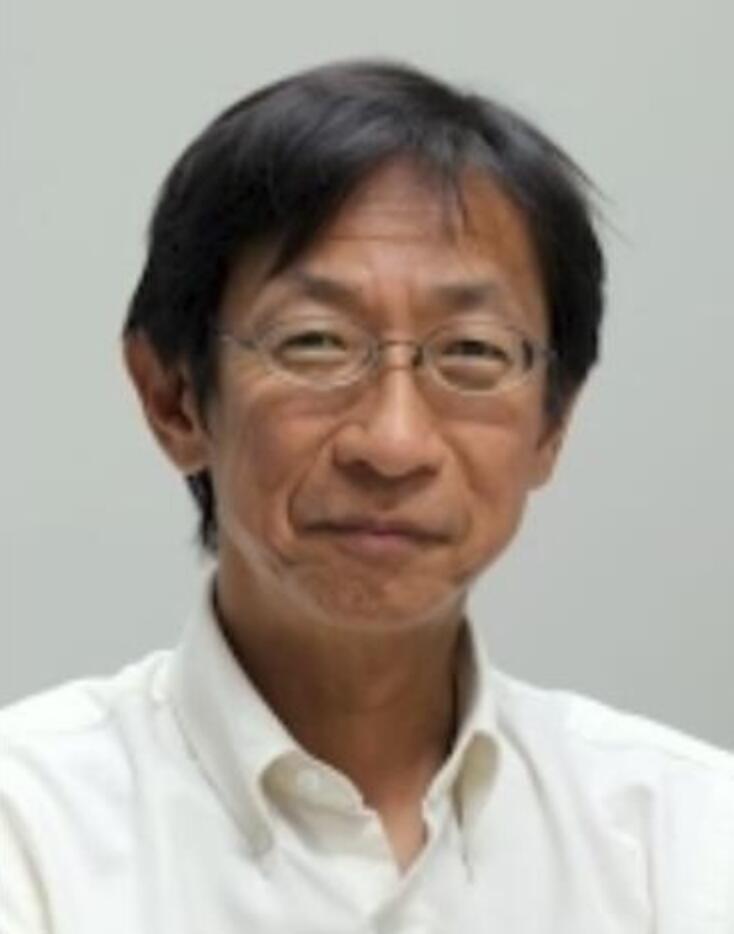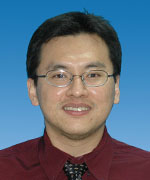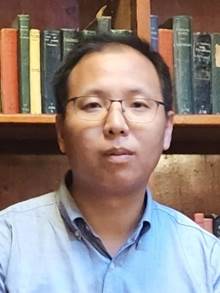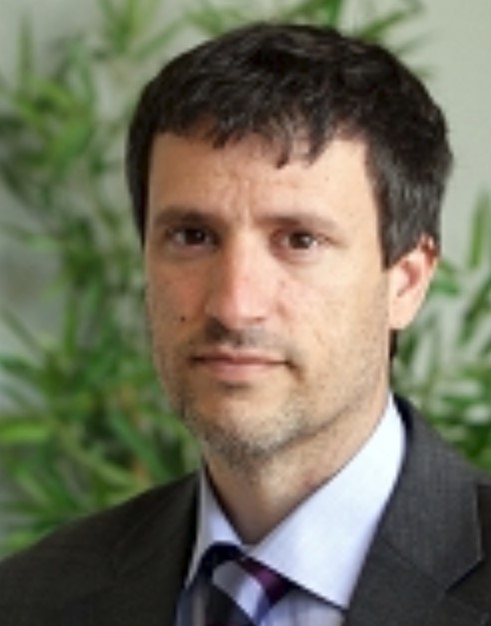
Juan Manuel Corchado (born May 15, 1971 in Salamanca, Spain). He is Full Professor with Chair at the University of Salamanca. He was Vice President for Research and Technology Transfer from December 2013 to December 2017 and the Director of the Science Park of the University of Salamanca, Director of the Doctoral School of the University until December 2017 and also, he has been elected twice as the Dean of the Faculty of Science at the University of Salamanca. In addition to a PhD in Computer Sciences from the University of Salamanca, he holds a PhD in Artificial Intelligence from the University of the West of Scotland. Juan Manuel Corchado is Visiting Professor at Osaka Institute of Technology since January 2015 and Visiting Professor at the Universiti Malaysia Kelantan. Corchado is the Director of the European IoT Digital Innovation Hub and of the BISITE (Bioinformatics, Intelligent Systems and Educational Technology) Research Group, which he created in the year 2000, President of the AIR Institute, Academic Director of the Institute of Digital Art and Animation of the University of Salamanca and has been President of the IEEE Systems, Man and Cybernetics Spanish Chapter. He also oversees the Master´s programs in Digital Animation, Security, Blockchain, IoT, Mobile Technology, Information Systems Management and Agile Project Management at the University of Salamanca. Corchado has supervised more than 30 PhD theses, is author of over 800 research peer review papers and books, has chaired the scientific committee of more than 30 international conferences, and is also Editor-in-Chief of Specialized Journals like ADCAIJ (Advances in Distributed Computing and Artificial Intelligence Journal) and OJCST (Oriental Journal of Computer Science and Technology).
Abstract: This keynote will present success stories regarding specially smart cities. All these fields require the development of interactive, reliable and secure systems which we are capable of building thanks to current advances. Deepint.net, a tool developed by DCSc and BISITE will be presented. Several use cases of intelligent systems will be presented and it will be analysed how the different processes have been optimized by means of tools that facilitate decision-making. Artificial Intelligence revived in the last decade. The need for progress, the growing processing capacity and the low cost of the Cloud have facilitated the development of new, powerful algorithms. The efficiency of these algorithms in Big Data processing, Deep Learning and Convolutional Networks is transforming the way we work and is opening new horizons. Thanks to them, we can now analyse data and obtain unimaginable solutions to today’s problems. Nevertheless, our success is not entirely based on algorithms, it also comes from our ability to follow our “gut” when choosing the best combination of algorithms for an intelligent artefact. It's about approaching engineering with a lot of knowledge and tact. This involves the use of both connectionist and symbolic systems, and of having a full understanding of the algorithms used. Moreover, to address today’s problems we must work with both historical and real-time data. We must fully comprehend the problem, its time evolution, as well as the relevance and implications of each piece of data, etc. It is also important to consider development time, costs and the ability to create systems that will interact with their environment, will connect with the objects that surround them and will manage the data they obtain in a reliable manner. In this keynote, the evolution of intelligent computer systems will be examined. The need for human capital will be emphasised, as well as the need to follow one’s “gut instinct” in problem-solving. We will look at the benefits of combining information and knowledge to solve complex problems and will examine how knowledge engineering facilitates the integration of different algorithms. Furthermore, we will analyse the importance of complementary technologies such as IoT and Blockchain in the development of intelligent systems. It will be shown how tools like "Deep Intelligence" make it possible to create computer systems efficiently and effectively. "Smart" infrastructures need to incorporate all added-value resources so they can offer useful services to the society, while reducing costs, ensuring reliability and improving the quality of life of the citizens. The combination of AI with IoT and with blockchain offers a world of possibilities and opportunities. The use of edge platforms or fog computing helps increase efficiency, reduce network latency, improve security and bring intelligence to the edge of the network; close to the sensors, users and to the medium used.

Kazuya Takeda (Senior Member, IEEE) received the B.E. and M.E. degrees in electrical engineering and the D.Eng. degree from Nagoya University, Nagoya, Japan, in 1983, 1985, and 1994, respectively. From 1986 to 1989, he was with the Advanced Telecommunication Research Laboratories, Osaka, Japan. He was a Visiting Scientist with the Massachusetts Institute of Technology, from November 1987 to April 1988. From 1989 to 1995, he was a Researcher and a Research Supervisor with the KDD Research and Development Laboratories, Kamifukuoka, Japan. From 1995 to 2003, he was an Associate Professor with the Faculty of Engineering, Nagoya University. Since 2003, he has been a Professor with the Department of Intelligent Systems, Graduate School of Informatics, Nagoya University and currently is the Head of the Takeda Laboratory, Graduate School of Information Science, Nagoya University. His current research interests include media signal processing and its applications, which include speech recognition, and driving behavior modeling.

Prof. Ir Dr. Lim Yun Seng received his early education in Kota Kinabalu, Sabah before he pursued his undergraduate studies in Electrical and Electronic Engineering at the University of Manchester Institute of Science and Technology (UMIST), United Kingdom, in 1998. Subsequently, Lim pursued his Ph.D. at UMIST in the area of power system from September 1998 to September 2001. In 2002, he worked as a postdoctoral research assistant at UMIST in the area of renewable energy. In 2003, he joined Econnect Ltd, United Kingdom as an R&D Engineer specialising in research on the integration of renewable energy sources with the power system networks. Dr. Lim started his academic career at Universiti Tunku Abdul Rahman (UTAR) in 2005. Over the past 9 years, Dr. Lim has secured 11 external research grants from The Ministry of Green Technology, Water and Communication, The Ministry of Science, Technology and Innovation as well as The Ministry of Higher Education for the research projects on smart grid and renewable energy. The total amount of research grants received so far is RM 4.33 million or USD 1.23 million. Dr. Lim has published 24 international journals with the total citations of 264 at h-index of 7. He has filed 4 patents on his inventions. One of the patents is filed with the Chinese State Intellectual Property Office. Of all his 12 postgraduate students, Dr. Lim has successfully graduated 7 postgraduate students so far. He has carried out 12 consultancy projects for various industries, universities and engineering societies with the total fees of RM 33,000.00. Dr. Lim won 16 international and national awards such as Gold Medal in 2013 International Invention & Innovation Exhibition, KASS Best Invention of the year 2012 and UTAR Best Invention of the year 2013. Dr. Lim has consistently received good teaching scores from his students for teaching energy-related subjects in the undergraduate and Master courses. Dr. Lim is a professional engineer with Practising Certificate and CEng registered with Board of Engineer Malaysia and UK Engineering Council respectively. He is the full member of IET, IEM and also the senior member of IEEE. He is also the Fellow of ASEAN Academy of Engineering and Technology (AAET).

Dr. Xiangjie Kong is currently a Professor in College of Computer Science & Technology, Zhejiang University of Technology (ZJUT), China. Previously, he is an Associate Professor in School of Software, Dalian University of Technology (DUT), China. He is Co-Director of The Alpha Lab (http://thealphalab.org/), and Founding Director of City Science of Social Computing Lab (http://cssclab.cn/). He has served as Academic Editor of PeeJ Computer Science (2018-), Academic Editor of Wireless Communications and Mobile Computing (2021-), Associate Editor of IEEE Access (2017-), Editor of KSII Transactions on Internet and Information Systems (2016-), Editor of SpringerPlus (2015-2016), (Leading) Guest Editor of several international journals including Pervasive and Mobile Computing (2018), International Journal of Distributed Sernsor Networks (2015), Future Internet (2019) etc., Workshop Chair or PC Member of a number of conferences including ICDM, ICC, IEEE BigData, UIC, COMPLEX NETWORKS, BigScholar, IOP, MobiSPC, etc.. Dr. Kong has authored/co-authored over 130 scientific papers in international journals and conferences including IEEE TKDE, ACM TKDD, IEEE TII, IEEE COMMUN MAG, IEEE TVT, IEEE IOJ, IEEE TSMC, IEEE TETC, IEEE TASE, IEEE TCSS, WWWJ, FGCS, JNCA, AD HOC NETW, IJRNC SCIM, WWW, etc.. 3 of his papers is selected as ESI- Hot Paper (Top 1‰), and 13 papers are ESI-Highly Cited Papers (Top 1%). His research has been reported by Nature Index and other medias. He has been invited as Reviewers for numerous prestigious journals including IEEE TMC, IEEE TITS, IEEE TII, IEEE IOTJ, IEEE COMMUN MAG, IEEE WIREl COMMUN, JOI, JASIST, SCIM, TCJ, etc.. Dr. Kong has authored/co-authored three books (in Chinese). He has contributed to the development of 12 copyrighted software systems and 15 filed patents. He has an h-index of 32 an i10-index of 79, and a total of more than 3400 citations to his work according to Google Scholar. His research interests include big data, network science, and computational social science. He is a Senior Member of IEEE and CCF, a FULL Member of Sigma Xi, and a Member of ACM.
Abstract: In the fast-growing scholarly big data background, social network technologies have recently aroused widespread attention in academia and industry. The concept of academic social networks is created precisely in the context of scholarly big data, which refers to the complicated academic network formed by academic entities and their relationships. There are a wealth of data-driven methods to analyze the rich structural types and related information about academic social networks. Nowadays, various academic data can be easily obtained, which makes it easier for us to analyze and study academic social networks. This talk investigates the background, the current status, and trends of academic social networks, and reviews representative research tasks in this domain from three levels: actor, relationship, and network.

Francisco Falcone received the degree in
telecommunication engineering and the Ph.D. degree
in communication engineering from the Universidad
Publica de Navarra (UPNA), Spain, in 1999 and 2005,
respectively. From February 1999 to April 2000, he
was a Microwave Commissioning Engineer with
Siemens-Italtel, deploying microwave access systems.
From May 2000 to December 2008, he was a Radio
Access Engineer with Telefonica Moviles, performing
radio network planning and optimization tasks in
mobile network deployment. In January 2009, as a
Co-Founding Member, he has been the Director of
Tafco Metawireless, a spin-off company from UPNA,
until May 2009. In parallel, he was an Assistant
Lecturer with the Electrical and Electronic
Engineering Department, UPNA, from February 2003 to
May 2009. In June 2009, he becomes an Associate
Professor with the EE Department, being the
Department Head, from January 2012 to July 2018.
From January 2018 to May 2018, he was a Visiting
Professor with the Kuwait College of Science and
Technology, Kuwait. He is also affiliated with the
Institute for Smart Cities (ISC), UPNA, which hosts
around 140 researchers. He is currently acting as
the Head of the ICT Section. His research interests
include related to computational electromagnetics
applied to the analysis of complex electromagnetic
scenarios, with a focus on the analysis, design, and
implementation of heterogeneous wireless networks to
enable context-aware environments. He has more than
500 contributions in indexed international journals,
book chapters, and conference contributions. He
received the CST 2003 and CST 2005 Best Paper Award,
the Ph.D. Award from the Colegio Oficial de
Ingenieros de Telecomunicacion (COIT), in 2006, the
Doctoral Award UPNA, in 2010, the First Juan Gomez
Peñalver Research Award from the Royal Academy of
Engineering of Spain, in 2010, the XII Talgo
Innovation Award 2012, the IEEE 2014 Best Paper
Award, in 2014, the ECSA-3 Best Paper Award, in
2016, and the ECSA-4 Best Paper Award, in 2017.